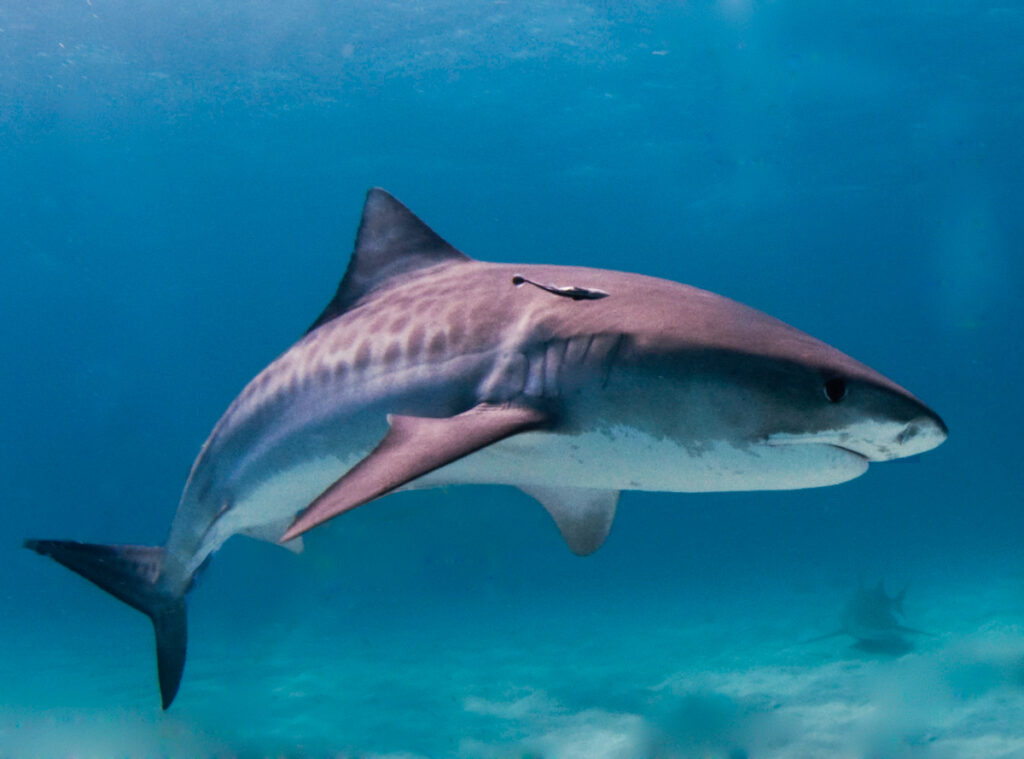In a tragic incident that unfolded in Hurghada, Egypt, a Russian national lost their life in a shark attack while enjoying the beauty of the Red Sea. The incident serves as a reminder of the importance of ocean safety and the need for increased awareness among tourists and local communities alike. This article aims to provide a factual account of the incident, shedding light on the characteristics of the tiger shark involved, while promoting a respectful understanding of traditional shark behavior.
In Hurghada, a popular Egyptian Red Sea resort, tragedy struck as a shark attack claimed the life of a Russian tourist. The incident has left the local community and visitors in shock. Egyptian authorities swiftly responded to the incident, initiating investigations to gather information and assess the situation.
Tiger Shark Identification:
According to experts, the shark responsible for the attack was identified as a tiger shark. Tiger sharks are known for their large size, distinct striped markings, and preference for warm waters. While they are a formidable species, it is important to recognize that shark attacks are rare and isolated incidents that occur despite the sharks’ traditional behavior.
Shark Behavior:
Sharks are an integral part of the marine ecosystem, playing a crucial role in maintaining balance and biodiversity. Contrary to sensationalized depictions in popular media, shark attacks are uncommon, and sharks generally pose little threat to humans. These creatures primarily feed on marine life and typically do not view humans as prey. However, rare cases of mistaken identity or defensive behavior can result in unfortunate encounters.
Ocean Safety and Conservation Efforts:
In the wake of this tragic incident, it is imperative to emphasize the importance of ocean safety and conservation efforts. Authorities in Hurghada have long been committed to ensuring the safety of visitors by implementing measures such as lifeguard services, safety guidelines, and regular monitoring of shark activity. Such initiatives are aimed at minimizing risks while preserving the marine environment.
Tourist Awareness and Responsible Tourism:
Visitors to coastal areas and diving destinations should familiarize themselves with local guidelines and adhere to safety protocols. Understanding and respecting traditional shark behavior can go a long way in preventing incidents and promoting peaceful coexistence between humans and marine life. Responsible tourism practices, including environmentally friendly activities and supporting local conservation projects, also play a significant role in protecting both tourists and marine ecosystems.
Conclusion:
The tragic shark attack in Hurghada, Egypt, underscores the importance of ocean safety, conservation efforts, and responsible tourism. While incidents like these are rare, they serve as a reminder for communities, tourists, and authorities to prioritize measures that enhance safety without instilling unnecessary fear or perpetuating misconceptions about shark behavior. By fostering a respectful understanding of these majestic creatures, we can ensure the well-being of both humans and the marine environment for generations to come.







